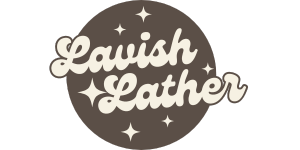Industry Overview
The private-label shampoo industry has experienced remarkable growth in recent years. Consumers are increasingly drawn to personalized solutions offered by private-label brands. By leveraging established manufacturing capabilities, businesses can create unique products through custom formulations and branding.
Current Trends and Consumer Preferences
Staying up-to-date with current trends and consumer preferences is crucial for success in the private-label shampoo market. Key trends include a preference for natural ingredients, cruelty-free options, and sustainable packaging. Consumers also seek products tailored to address specific hair concerns such as dryness or color protection.
Identifying Target Markets and Their Needs
Understanding your target market is vital for building a thriving private-label shampoo business. Consider factors such as age group, lifestyle, and specific hair types. By tailoring your product offerings to meet these needs, you can position yourself as an expert brand that caters to evolving consumer demands.
Creating Your Unique Shampoo Formula
Overview of the Private Label Shampoo Industry
- The private labeling business model allows entrepreneurs to create their brands without starting from scratch.
- Third-party manufacturers specialize in producing high-quality shampoos for other brands or individuals.
Current Market Trends and Consumer Preferences
- There’s a growing demand for natural and organic hair care products.
- Consumers are increasingly conscious of harmful chemicals in shampoos and prefer clean ingredients.
- Vegan and cruelty-free options have become popular among those who prioritize ethical choices.
- Customization is on the rise as customers seek personalized solutions for their unique hair concerns.
Potential Target Markets and Their Needs
- Women look for products that address specific hair concerns such as dryness, frizz, or color-treated hair protection.
- Men’s grooming has seen significant growth with male-specific shampoos focusing on scalp health or beard care becoming popular choices.
- Parents seek gentle yet effective shampoos formulated specifically for children’s delicate scalps.
Finding the Right Manufacturer
Choosing the Perfect Manufacturer for Your Private Label Shampoo Business
When starting a private-label shampoo business, selecting the right manufacturer is crucial for guaranteeing the excellence and success of your products. Consider factors such as cost, minimum order quantities, turnaround time, quality assurance, certifications, and reputation. By vetting potential manufacturers and ensuring their alignment with your business needs, you can ensure the production of high-quality private-label shampoos.
8 Tips for Vetting Potential Manufacturers
- Request samples of their previous work.
- Inquire about their experience in manufacturing hair care products specifically.
- Ask about their ingredient sourcing practices.
- Discuss the packaging options they offer.
- Inquire about lead times for production runs.
- Clarify their policies on product formulation changes.
- Discuss their ability to scale production as your business grows.
- Request a detailed quote that includes all costs involved.
Branding and Packaging Your Product
Creating Your Brand and Packaging
When starting your own private-label shampoo business, prioritizing the branding and packaging of your products is essential. These elements not only attract customers but also communicate the quality and individuality of what you offer. Focus on building a strong brand identity, designing attention-grabbing packaging, and ensuring legal compliance for labeling and claims.
Setting Up Your Business
Starting Your Private Label Shampoo Business
Starting your own private-label shampoo business requires careful planning and attention to detail. Follow these essential steps to set up your business successfully:
- Understand the legal requirements.
- Develop a solid business plan.
- Secure financing options.
- Choose an appropriate business structure.
- Establish relationships with suppliers.
- Create an efficient supply chain.
- Implement effective quality control measures.
- Plan your marketing strategy.
- Build an online presence.
- Monitor performance metrics.
Marketing and Selling Your Shampoo
Effective Marketing and Sales Strategies for Your Private Label Shampoo Business
When it comes to launching your own private-label shampoo brand, effective marketing and sales strategies are crucial for success. Consider choosing the right sales channels, building a strong online presence, leveraging social media marketing and influencer partnerships, utilizing email marketing campaigns, providing exceptional customer service, and implementing targeted advertising campaigns. Continuously monitor the effectiveness of your strategies and stay up-to-date with industry trends to stay ahead in the competitive private-label shampoo market.
Scaling Your Business
Selling Your Private Label Shampoo
As your private-label shampoo business grows, it’s important to scale effectively. Focus on choosing the right sales channels, building a strong online presence, leveraging social media marketing and influencer partnerships, implementing email marketing campaigns, providing exceptional customer service, utilizing user-generated content, and designing eye-catching packaging. Continuously monitor industry trends and consumer preferences to refine your approach and ensure long-term success.

